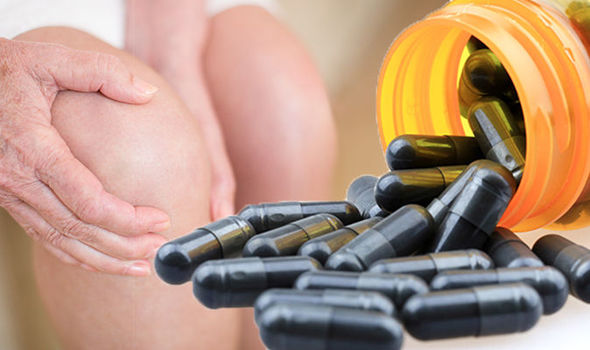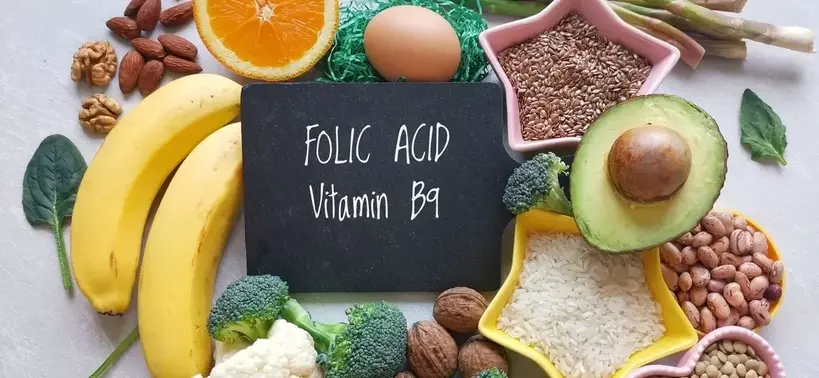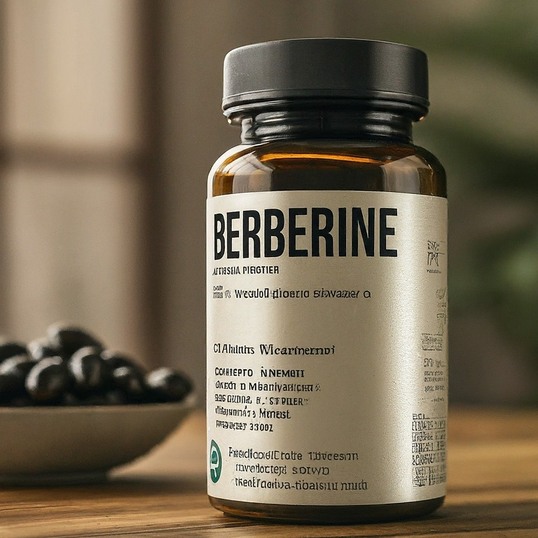Rheumatoid arthritis (RA) is an autoimmune disorder that causes inflammation, swelling, and pain in the joints. While conventional treatments, including anti-inflammatory drugs and immune-suppressing medications, are commonly used to manage symptoms, some individuals turn to supplements to complement these treatments. Certain supplements, supported by scientific research, may offer relief from the inflammation, stiffness, and pain associated with RA. Here’s a detailed look at some of the best supplements that can aid in managing rheumatoid arthritis pain.
1. Omega-3 Fatty Acids: Natural Anti-inflammatory Agents
Omega-3 fatty acids, particularly EPA and DHA found in fish oil, are potent natural anti-inflammatories. They work by reducing cytokine levels, which are responsible for joint inflammation in RA.
Benefits and Dosage
- Reduced Joint Pain: Omega-3s are linked to reduced morning stiffness and joint pain.
- Heart Health: These fatty acids also support cardiovascular health, which is essential for RA patients due to their higher risk of heart disease.
- Dosage: 2–3 grams daily of combined EPA and DHA.
Research Highlights
A study published in Rheumatology International found that omega-3 supplementation significantly decreased RA symptoms. Another study in the Journal of Clinical Rheumatology reported that patients taking fish oil alongside standard RA treatment experienced improved joint health and reduced pain.
2. Curcumin (Turmeric): Potent Anti-Inflammatory
Curcumin, the primary compound in turmeric, has been praised for its anti-inflammatory and antioxidant properties, offering relief from RA symptoms by targeting inflammatory pathways.
Benefits and Dosage
- Pain Reduction: Curcumin helps reduce pain levels and can be an effective alternative for individuals intolerant to NSAIDs.
- Antioxidant Support: It neutralizes free radicals, reducing oxidative stress.
- Dosage: 500–2,000 mg daily with black pepper to improve bioavailability.
Research Highlights
In a Phytotherapy Research study, RA patients taking curcumin experienced comparable relief to those on NSAIDs, without the common side effects. Combining turmeric with piperine, a compound in black pepper, was found to improve curcumin absorption by 2000%, maximizing its effects.
3. Boswellia Serrata: Ancient Joint Relief
Boswellia serrata, also known as frankincense, has been used traditionally for centuries. This resin contains boswellic acids, which reduce inflammation and pain in joints.
Benefits and Dosage
- Joint Support: Boswellia can help preserve joint integrity by reducing enzymatic degradation.
- Improved Mobility: Reduces swelling and allows greater flexibility in affected joints.
- Dosage: 300–500 mg two to three times daily.
Research Highlights
A Journal of Rheumatology study found that Boswellia helped reduce joint pain in patients with arthritis. Its benefits for mobility and swelling were evident within 8 weeks of consistent use.
4. SAM-e (S-adenosylmethionine): Joint and Mood Support
SAM-e supports joint health and also acts as a mood enhancer, which can be beneficial as RA often leads to depression and anxiety.
Benefits and Dosage
- Pain Reduction: SAM-e shows pain-relieving effects similar to NSAIDs.
- Mood Improvement: It boosts serotonin levels, potentially improving mental well-being.
- Dosage: 600–1,200 mg daily.
Research Highlights
Research in BMC Complementary Medicine and Therapies reveals that SAM-e users experience similar pain reduction to those on ibuprofen, with the added benefit of mood enhancement. This makes it ideal for managing both physical and psychological symptoms of RA.
5. Vitamin D: Essential Immune Support
Vitamin D plays a crucial role in modulating immune function, which is critical in autoimmune conditions like RA.
Benefits and Dosage
- Immune Regulation: Helps manage immune responses, reducing overactive inflammation.
- Bone Health: Vital for bone density, which can be compromised in RA patients.
- Dosage: 1,000–2,000 IU daily.
Research Highlights
Studies published in Autoimmunity Reviews indicate that vitamin D deficiency may exacerbate RA symptoms, and supplementation can help manage pain and inflammation. This nutrient’s regulatory effect on immune cells has proven particularly beneficial for RA patients.
6. Ginger: Natural Pain Reliever
Ginger contains bioactive compounds like gingerol, which offer anti-inflammatory and pain-relieving properties beneficial for RA.
Benefits and Dosage
- Reduced Stiffness: Ginger helps alleviate morning stiffness in RA patients.
- Antioxidant: Its high antioxidant profile protects against joint damage.
- Dosage: 1–2 grams daily.
Research Highlights
A clinical trial in Arthritis & Rheumatology highlighted ginger’s effectiveness in reducing RA pain and stiffness, with results comparable to some NSAIDs.
7. Probiotics: Supporting Gut Health and Immune Function
Probiotics support immune health, which is especially important for autoimmune conditions like RA. Certain probiotic strains can help reduce systemic inflammation.
Benefits and Dosage
- Reduced Inflammation: Supports balanced immune function, reducing inflammatory markers.
- Improved Digestion: Helps manage digestive issues caused by RA medications.
- Dosage: 1–10 billion CFUs daily.
Research Highlights
A review in Frontiers in Immunology emphasizes probiotics’ effectiveness in reducing RA inflammation, with specific strains like Lactobacillus rhamnosus showing promising results.
8. Collagen: Supporting Joint Structure
Collagen peptides support cartilage repair and protect joint structures from further deterioration.
Benefits and Dosage
- Joint Support: Rebuilds cartilage, essential for joint flexibility and stability.
- Pain Reduction: Can reduce joint discomfort by cushioning bones.
- Dosage: 5–10 grams daily.
Research Highlights
Studies in Osteoarthritis and Cartilage demonstrate collagen’s effectiveness in improving joint function and reducing pain, especially beneficial for RA patients.
9. Glucosamine and Chondroitin: Natural Cartilage Builders
These compounds naturally occur in cartilage and are thought to promote joint health by protecting and rebuilding cartilage.
Benefits and Dosage
- Cartilage Protection: Helps reduce further joint degeneration.
- Pain Relief: Reduces symptoms like stiffness and joint pain.
- Dosage: 1,500 mg glucosamine and 1,200 mg chondroitin daily.
Research Highlights
According to The Annals of the Rheumatic Diseases, glucosamine and chondroitin sulfate supplementation led to improved joint function and reduced pain in RA and osteoarthritis patients.
10. MSM (Methylsulfonylmethane): Flexibility Booster
MSM supports joint and muscle health by reducing inflammation and promoting recovery from muscle strain.
Benefits and Dosage
- Pain Relief: Reduces muscle soreness and joint pain.
- Improved Flexibility: Enhances range of motion by reducing stiffness.
- Dosage: 1,500–6,000 mg daily.
Research Highlights
A study in The Journal of Clinical Medicine found that MSM reduced pain and stiffness in RA patients, allowing greater movement flexibility and improved quality of life.
11. Turmeric (Curcumin): Powerful Anti-inflammatory
Turmeric, particularly its active compound curcumin, is known for its anti-inflammatory effects, making it a popular choice for those managing RA.
Benefits and Dosage
- Pain and Inflammation Reduction: Curcumin reduces joint swelling and tenderness.
- Antioxidant Properties: Protects against cellular damage in joints.
- Dosage: 500–2,000 mg of curcumin with black pepper for absorption.
Research Highlights
Studies show that curcumin can reduce joint swelling, often at levels comparable to NSAIDs. A study published in Clinical and Experimental Rheumatology demonstrated improved outcomes in RA patients when combined with black pepper extract.
12. Vitamin K2: Bone and Joint Health
Vitamin K2 aids in calcium regulation, preventing joint calcification and supporting bone health, which is vital for RA patients.
Benefits and Dosage
- Bone Support: Enhances calcium metabolism for stronger bones.
- Anti-inflammatory Properties: Helps reduce joint inflammation.
- Dosage: 90–120 mcg daily.
Research Highlights
Research in The Journal of Bone and Mineral Research shows that Vitamin K2 can help maintain bone density, reducing the risk of RA-related bone complications.
13. Resveratrol: Antioxidant and Anti-inflammatory Compound
Resveratrol, found in red grapes and berries, provides anti-inflammatory benefits, reducing oxidative stress and inflammation.
Benefits and Dosage
- Reduced Inflammation: Helps lower inflammatory cytokines in the blood.
- Heart Health: Protects cardiovascular health, which is a concern for RA patients.
- Dosage: 150–500 mg daily.
Research Highlights
A study in Oxidative Medicine and Cellular Longevity highlighted resveratrol’s effectiveness in lowering RA inflammation, making it a promising supplement for those with autoimmune conditions.
14. Bromelain: Enzyme for Pain Relief
Bromelain, an enzyme from pineapples, has anti-inflammatory properties that help alleviate joint pain and swelling in RA.
Benefits and Dosage
- Pain Reduction: Provides relief from joint discomfort.
- Improved Mobility: Reduces inflammation that leads to joint stiffness.
- Dosage: 500–2,000 mg daily, depending on severity.
Research Highlights
According to Alternative Therapies in Health and Medicine, bromelain showed significant improvement in joint swelling and pain relief in RA patients when used as an adjunct therapy.
15. CBD Oil: Natural Pain Reliever
Cannabidiol (CBD) has gained attention for its pain-relieving and anti-inflammatory properties, especially for those with chronic conditions like RA.
Benefits and Dosage
- Pain Management: Reduces joint pain and inflammation.
- Improved Sleep: Aids sleep quality, helping patients with RA-related fatigue.
- Dosage: Varies widely; 20–40 mg per day is common.
Research Highlights
Preliminary studies indicate that CBD may reduce RA pain without significant side effects. Research in Current Pharmaceutical Biotechnology found CBD effective in reducing chronic pain and inflammation.
16. Green Tea Extract: Rich in Antioxidants
Green tea is loaded with polyphenols like EGCG, which help reduce inflammation and oxidative stress, making it beneficial for RA.
Benefits and Dosage
- Reduced Inflammation: EGCG compounds decrease inflammatory markers.
- Joint Health: Helps slow cartilage breakdown.
- Dosage: 250–500 mg daily of green tea extract.
Research Highlights
Studies in Arthritis Research & Therapy show that green tea polyphenols can help prevent joint deterioration and may offer pain relief for those with RA.
17. Vitamin C: Immune Support and Antioxidant
Vitamin C plays a crucial role in collagen formation and has strong antioxidant properties, which can benefit joint health in RA.
Benefits and Dosage
- Antioxidant Protection: Reduces oxidative stress in joints.
- Collagen Support: Vital for joint and cartilage integrity.
- Dosage: 500–1,000 mg daily.
Research Highlights
A study in Rheumatology International supports that higher vitamin C intake is associated with lower RA symptoms, thanks to its role in reducing joint inflammation.
18. Zinc: Immune and Inflammatory Regulation
Zinc is vital for immune regulation, making it a beneficial supplement for RA patients who often have autoimmune-related inflammation.
Benefits and Dosage
- Immune System Support: Helps balance immune responses.
- Reduced Inflammatory Cytokines: Lowers cytokine levels that drive RA symptoms.
- Dosage: 15–30 mg daily.
Research Highlights
Research in The Journal of Nutrition shows that zinc can reduce inflammatory markers in RA, supporting joint health and reducing discomfort.
19. Selenium: Antioxidant Mineral
Selenium is a trace mineral that plays an antioxidant role, which can be beneficial in managing the oxidative stress associated with RA.
Benefits and Dosage
- Reduced Inflammation: Selenium helps regulate immune responses.
- Antioxidant: Protects cells from oxidative damage.
- Dosage: 55 mcg daily.
Research Highlights
A study in Autoimmunity Reviews notes that selenium deficiencies are common in RA patients and that supplementation may help improve RA symptoms through immune support.
20. Ashwagandha: Adaptogenic Herb
Ashwagandha, an adaptogenic herb, has anti-inflammatory and stress-reducing properties that may alleviate RA symptoms and improve overall well-being.
Benefits and Dosage
- Pain and Swelling Reduction: Helps reduce inflammatory markers.
- Improved Mental Health: Reduces anxiety, which can benefit RA patients.
- Dosage: 300–500 mg daily.
Research Highlights
Research published in The Indian Journal of Medical Research showed that ashwagandha reduced joint pain and inflammation, providing relief for patients with various autoimmune conditions, including RA.
Final Considerations for RA Supplementation
While these supplements show promise, it’s essential to approach them as complementary to traditional treatment rather than replacements. Always consult your healthcare provider before adding supplements to your routine, as some can interact with RA medications. Additionally, combining supplements may enhance their effects, as certain nutrients can work synergistically.
By exploring these supplements, RA patients can take a proactive approach to managing their symptoms. When integrated with lifestyle adjustments such as exercise, stress management, and dietary changes, supplements may offer significant relief and improve the quality of life.




